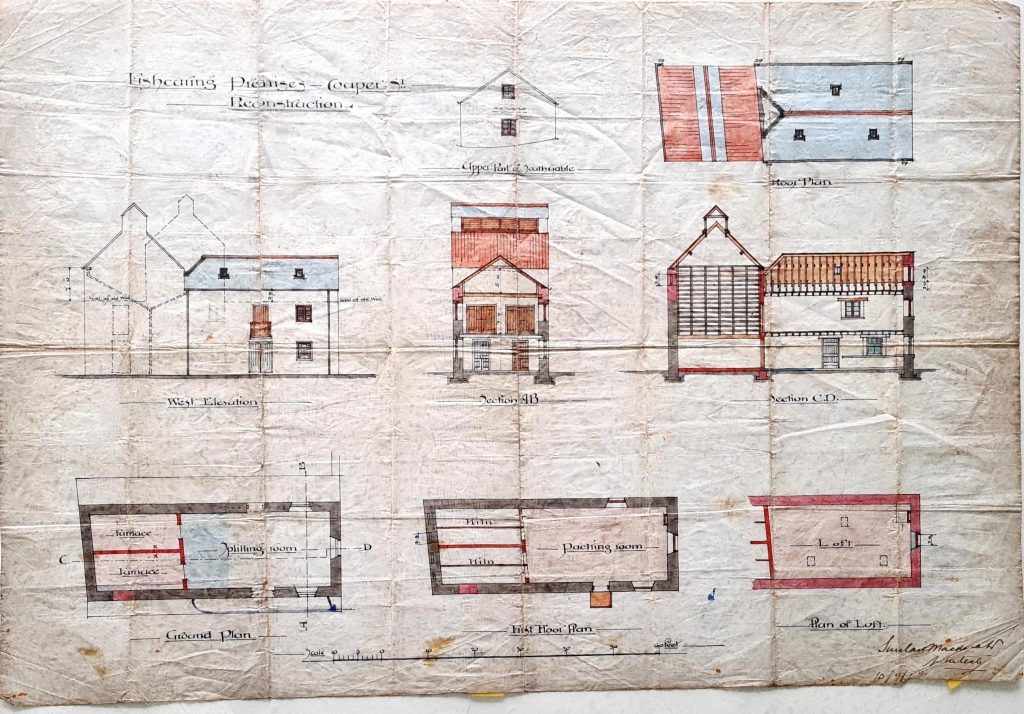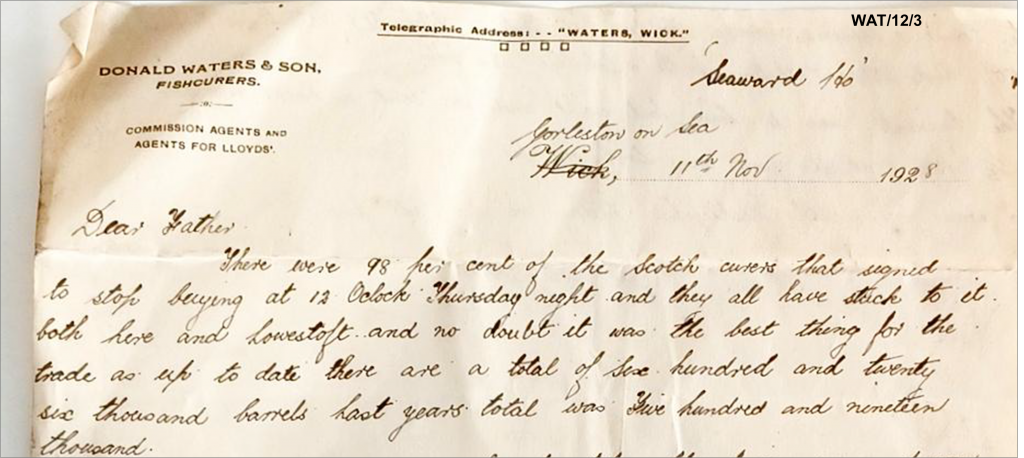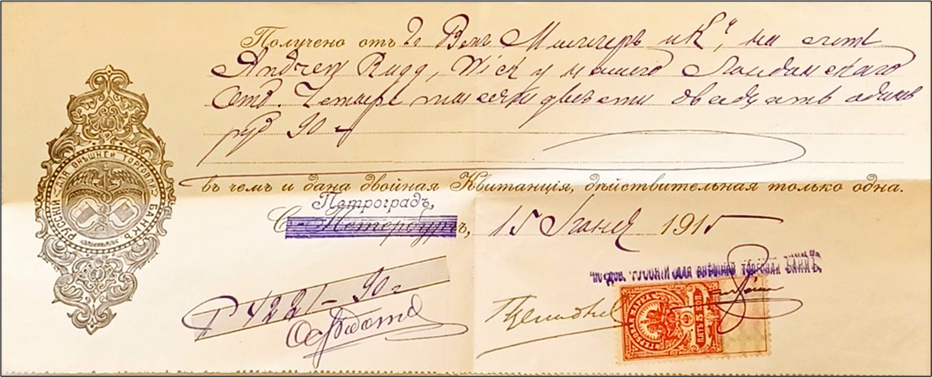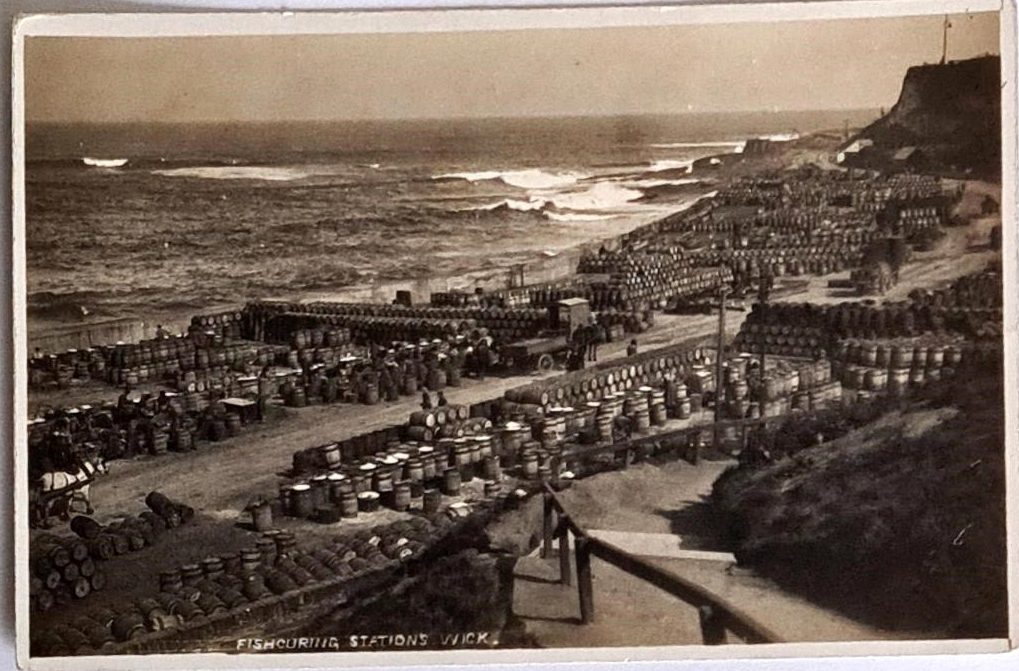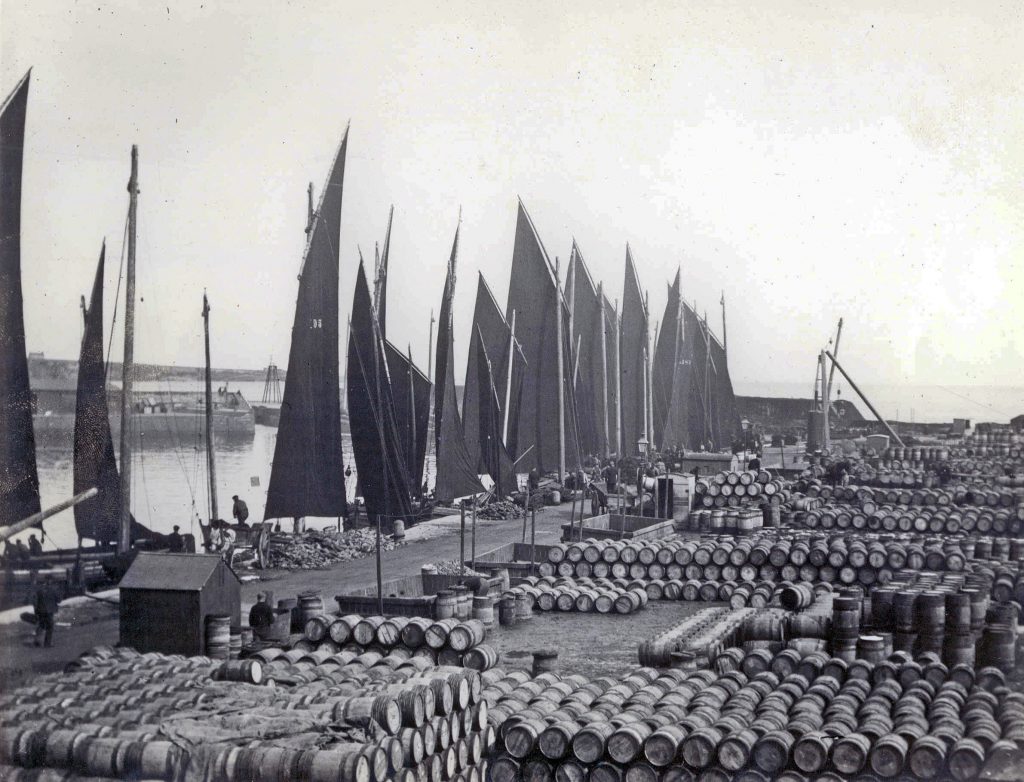
Curing is a way of preserving by salting, drying or smoking commonly used for meat, skins and fish. A Fish Curer is the job title of someone who cured fish for a living. There were a lot of Curers in Wick during the peak of the herring fishing industry. As herring are very fatty fish, they had to be cured as quickly as possible to prevent them from rotting.
There were numerous different curing methods used around the world. One method of curing that was popular in Caithness, was kippering. This involved slicing the whole herring in half, gutting it and then smoking it slowly over smouldering wood chips for about 6 weeks.
Below is a plan of fish curing premises on Couper Street, Thurso showing floor plans and sections from 1906. The plan was drawn by the firm Sinclair Macdonald, Architects of Thurso.
Curers were at the core of the herring industry. They engaged fishing boats, on contract, to land a fixed quantity of herring for a fixed price. They kept track of how much herring was caught and gave the boat’s skipper a cran token each time they landed a cran of fish. This continued until the contracted amount had been landed.
A cran was a unit of measurement for landed, uncleaned herring and equated to around 37.5 imperial gallons or typically 1,200 fish (but could vary from 700 to 2,500)
Curers also arranged for barrels, salt, and a team of gutters and packers to process the fish caught, as well as shipping for exporting the cured fish.
Donald Waters and Son, Fishcurers, Wick
Donald Waters and Son, Fishcurers was a business established in Wick, Caithness and which had business concerns throughout the United Kingdom including in Lerwick, Fraserburgh, Barra, Invergordon, Gorleston on Sea, Great Yarmouth, Hartlepool, Stornoway and Peterhead.
Donald Waters and his son also served as Agents for Lloyd’s London insurance company within Caithness.
The above letter is one of many sent between Donald Waters Senior and his son between 1928 and 1930. Donald Waters Junior was based in Gorleston-on-Sea at this time.
As you can see from the excerpt above, the number of herring barrels in 1928 exceeded that of the year before by a good amount—107,000 barrels difference!
1927: 519,000 barrels
1928: 626,000 barrels
Andrew Rugg, Fishcurer
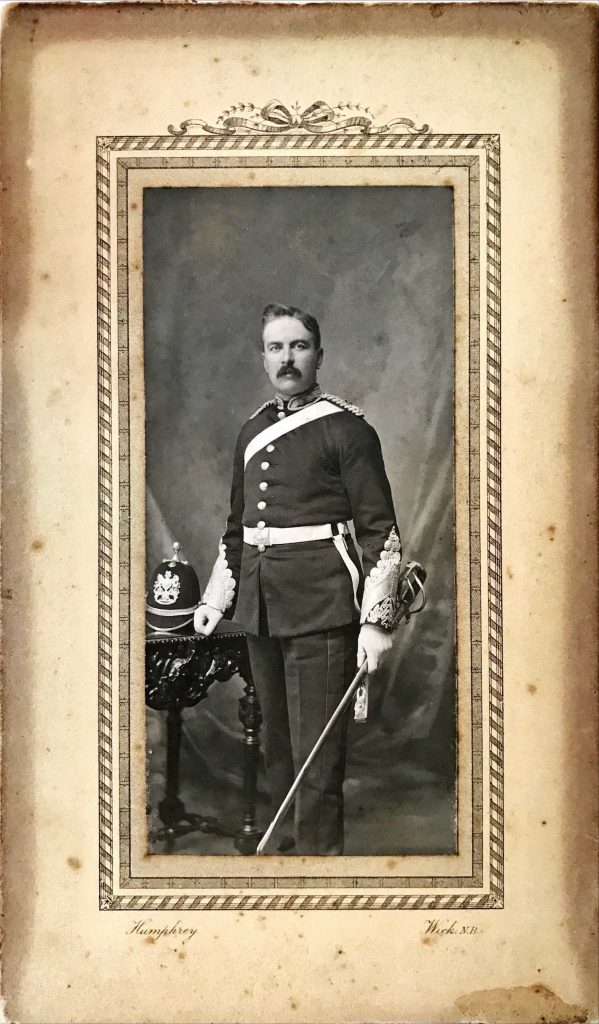
Black and white photograph of Andrew Rugg in military regalia, taken by Humphrey, Wick, c.1890 (Ref: P935/7/5)
Andrew Rugg was born in Keiss in 1864. He began work in the Sheriff Clerk’s office in Wick in 1879 and in 1884 he was appointed Sheriff Clerk Depute at the age of 20, retiring in 1931.
Whilst in office he had a range of other roles and businesses. He was a fishcurer, insurance agent, landlord, Secretary of the John o’ Groat Steam Laundry and owner of the steam drifter ‘Zoe’ and motorboat ‘Fruitful’. The family lived at Moss Palm, Sinclair Terrace, Wick.
His fishcuring business was large enough to frequently do financial transactions with the Russian Bank for Foreign Trade and their branch in London. He must have kept up to date with the exchange of currency also as his bank deposits with them are all in Russian Roubles. In modern times, 4,221.90 roubles would be worth £42.50 in pounds sterling, but of course in 1915 would have been worth much, much more.
